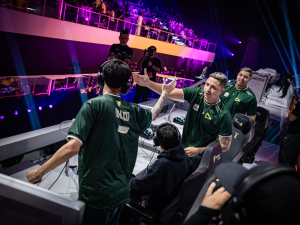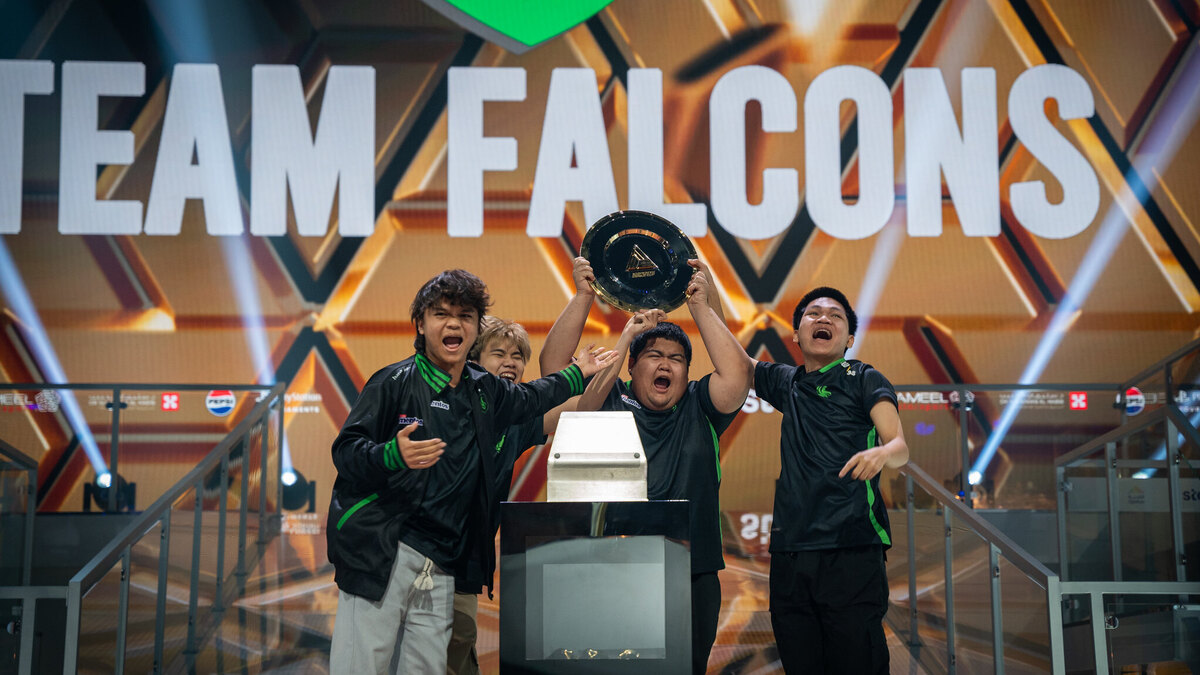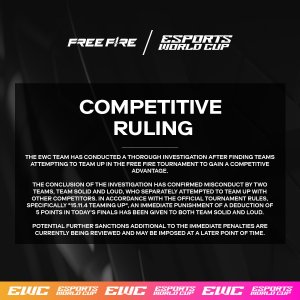In a recent turn of events at the Esports World Cup (EWC) 2024, Brazilian Free Fire teams LOUD and Team Solid have faced penalties due to allegations of teaming during the competition. This controversy has sparked discussions about fairness and regulatory actions in esports tournaments.
The Penalty Decision
Following a comprehensive investigation into allegations of collusion, the EWC imposed a penalty on both LOUD and Team Solid. Each team received a deduction of 5 points for the Grand Finals due to their attempt to collaborate with other teams, which is against the official tournament rules.
Impact of the Penalty
- LOUD’s Performance: Despite the 5-point deduction, LOUD finished 6th in the Grand Finals with 57 points, falling short of 5th place by 13 points.
- Team Solid’s Performance: Team Solid ended up 12th with 14 points, 10 points behind 11th place.
The penalty did not dramatically alter their final standings but had psychological implications for the teams.

EWC’s Official Statement
In an official statement, the EWC confirmed that both teams attempted to team up to gain an unfair advantage. According to the statement:
“The EWC Team conducted a thorough investigation after finding teams attempting to team up in the Free Fire tournament to gain a competitive advantage. The conclusion of the investigation has confirmed misconduct by two teams, Team Solid and LOUD, who separately attempted to team up with other competitors.”
“In accordance with the official tournament rules, specifically ‘15.11.4 Teaming Up,’ an immediate deduction of 5 points has been given to both teams in today’s Finals. Potential further sanctions are currently being reviewed.”
What Is Teaming in Battle Royale Games?
In Battle Royale games like Free Fire, “teaming” refers to an illegal collaboration between two or more teams to gain an advantage. This practice can undermine the competitive integrity of the tournament. Common scenarios of teaming include:
- Sharing Resources: Teams from the same region might share information or resources to help each other.
- Avoiding Conflict: Teams may agree not to engage each other in combat, even if they encounter each other during the match.
- Strategic Favoritism: A weaker team may deliberately assist a stronger team from the same country to improve their chances of winning.
The Consequences of Teaming
Teaming is generally penalized because it distorts the competitive balance of the game. Official tournaments often enforce strict rules to prevent such behavior, ensuring a fair competition for all participants.

Key Takeaways
- Penalties Imposed: LOUD and Team Solid received a 5-point deduction for attempting to team up.
- Impact on Results: The penalties had limited effect on their final standings but raised concerns about the fairness of the decision.
- Community Sentiment: There is significant dissatisfaction among fans, with calls for consistent enforcement of rules across all teams and regions.
Conclusion
The controversy surrounding the penalties for LOUD and Team Solid at the EWC 2024 highlights the ongoing challenges of maintaining fairness in esports competitions.
While the penalty for teaming did not significantly impact the final results, it underscores the importance of stringent enforcement of tournament rules to preserve competitive integrity.
The Uncertain Future of the Esports World Cup: Will It Become an Annual Event?


